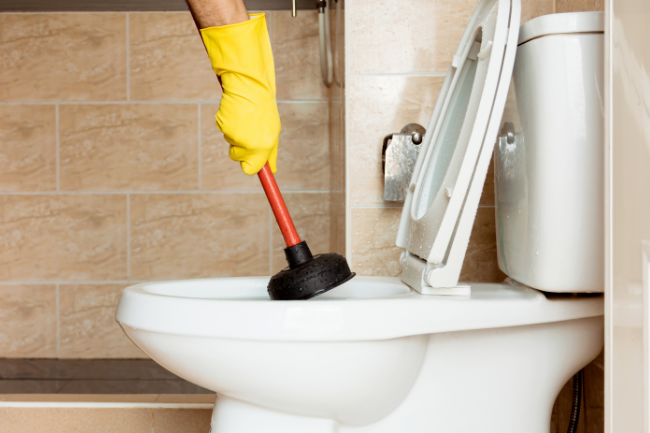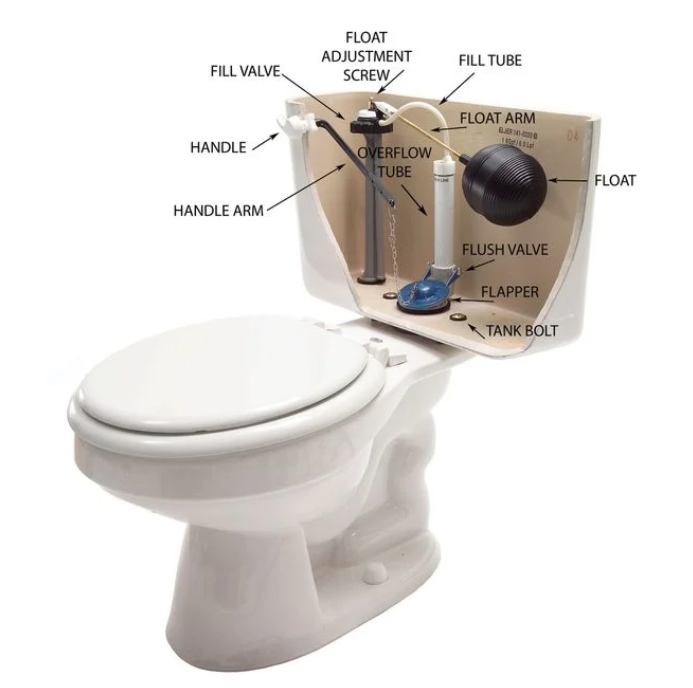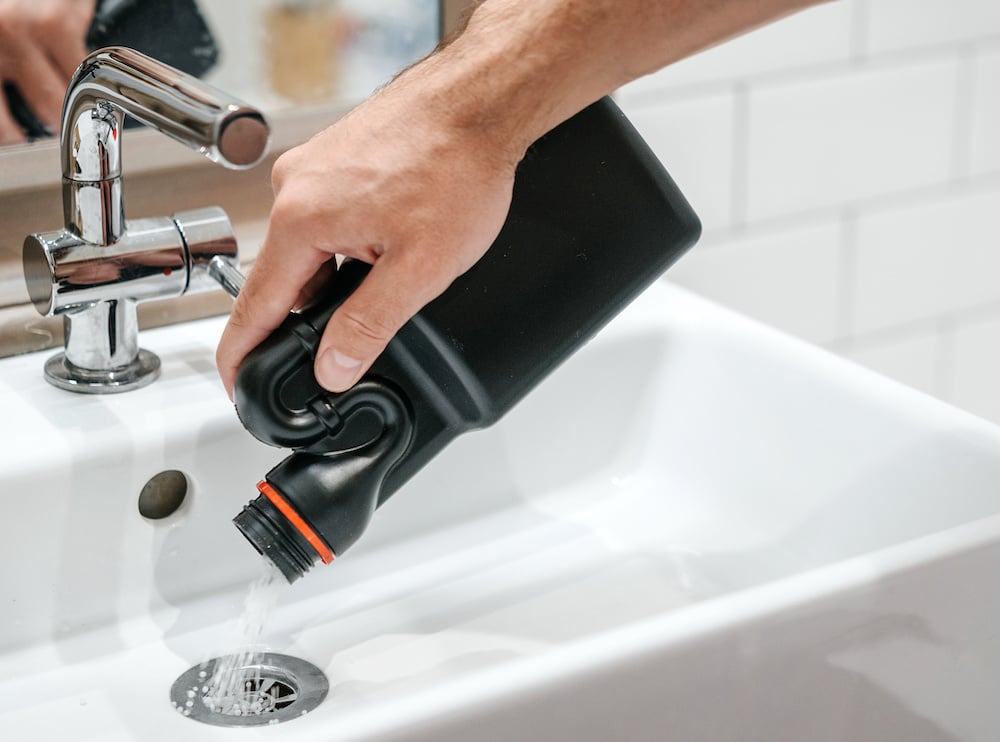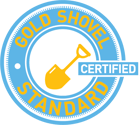How to Improve Home Plumbing [5 Simple Steps]
Posted by William Heinselman on

Home plumbing improvement, DIY cleaning, and routine repairs can help you keep your drains and pipes functioning for years to come and reverse the wear of aging and chemical breakup.
That said, it’s important you take the right measures for plumbing maintenance, and use the best tools and techniques for cleaning your drains, as poor practices can actually wind up causing plumbing problems.
In this blog, we look into 5 easy ways you can improve your home plumbing, and avoid costly, large-scale pipe disasters with simple maintenance. Drain cleaning and DIY plumbing don’t have to be a challenge.
Common Plumbing Disasters
From burst pipes in the dead of winter to stubbornly clogged drains causing water backups, plumbing disasters can strike when least expected, wreaking havoc on your home. Water heater failures can leave you shivering in the shower, while a running toilet can silently drain gallons of water—and your bank account—each day.
Leaking faucets might seem minor but over time, they can lead to inflated water bills and unsightly water stains. Sewer line backups are another nightmare, potentially bringing foul smells and unsanitary conditions into your living space. By being aware of these common issues, you can take proactive steps to prevent them, saving yourself from costly repairs and significant inconvenience.
5 Steps for Improving Home Plumbing
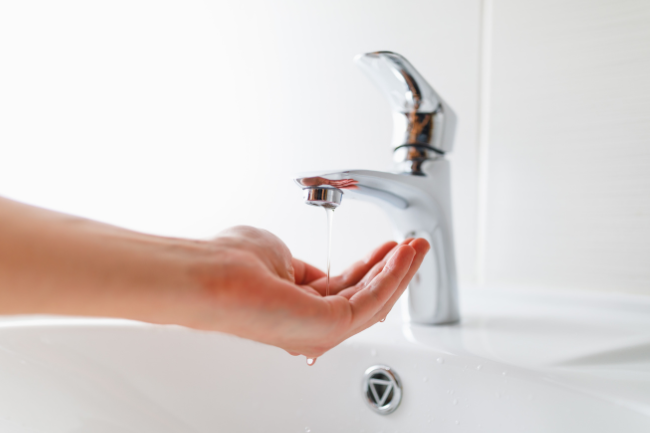
Follow these simple DIY steps to start the journey toward a better plumbing experience.
1.) Be Prepared for DIY With the Right Tools
Before you should even consider taking on DIY drain cleaning and preventative maintenance, you need to be sure you have the right tools for the tasks at hand. DIY plumbing improvement requires tools beyond conventional hardware. If you’re planning on taking on drain upkeep yourself, equip yourself with the following necessary tools.
- Professional-grade plumbing snakes, or augers
- Basin wrenches
- Pipe wrenches
- Metal files
- A sink plunger and petroleum jelly to create an effective seal between the plunger and your sink
- Hex wrenches
- Tubing cutters
- Metal, tongue-and-groove pliers
- Hacksaws
If you go about attempting drain cleaning and maintenance without these tools, you could wind up making matters worse for your plumbing. Don’t put your pipes at unnecessary risk by attempting maintenance without suitable hardware.
2.) Treat Your Pipes and Drains Right
Perhaps the best way to improve your plumbing and reduce the risk of clogging is by treating your plumbing systems right in the first place; avoid running certain materials and debris through your pipes, and you could avoid common clogging altogether. For the sink, shower, and garbage disposal drain health, try to keep the following from entering your drains:
- Hair
- Beauty or hygiene products
- Fibrous food products, such as celery and food skins
- Expandable products, such as rice, pasta, or bread
- Plastic wrappers
- Paper products
- Animal bones
- Cooking oils and leftover grease
Consider purchasing a drain cover for your sink or shower, as these grates can catch common clogging elements such as those listed above with ease.
Additionally, you should avoid using chemical cleaning products to dislodge clogs in your plumbing. While good at what they do, these commercial products can actually damage your pipes if used extensively. This goes without mentioning the potential health hazards they pose upon contact.
3.) Best Practices for Cleaning Clogs
If you find yourself stuck with a frustrating, recurring pipe clog, don’t sweat the problem just yet. There are several steps you can take to make your plumbing repair efforts much more effective.
For starters, if your sink drains or bathtub drains keep backing up, make sure to cover overflow vents before attempting to dislodge clogs with a plunger (these are the small vents located near the rim of your tub or sink). These vents prevent overflow by providing overflowing water as a secondary route to your pipes. Since plungers rely on pressurization and accumulated force to effectively remove debris, these vents must be covered to prevent air from escaping during cleaning.
Additionally, in contrast to the chemical cleaning products mentioned above, you may want to try using repeat hot water flushes, or baking soda/vinegar solutions, to break apart clogs. These safe alternatives to chemical cleaners can dislodge debris just as effectively as their commercial counterparts, and pose no risk to your pipes and your health.
4.) Make Self-Inspections Routine
The best way to improve the long-term health of your home plumbing system is by making self-inspection and necessary maintenance routines. To avoid most major plumbing disasters, and catch adverse conditions early on, we recommend self-evaluating your home plumbing system at least once per month. By doing so, you will likely be able to catch any developing drain, clog, or pipe damage problems before they turn into full-blown plumbing emergencies.
The most reliable plumbing systems belong to those who handle pipe repair proactively. Always be on the lookout for adverse water flow, pressure, or residue, and be sure to contact a trained plumbing technician right away if you notice any such changes.
5.) Have a Pro Evaluate Your Plumbing Annually (if Not More Often)
While regular self-inspections can do wonders for your home plumbing, and help you better catch performance issues early on, there are some things that plumbing experts in your community will always be better able to detect. That’s why we recommend having a professional plumber come in and evaluate the state of your plumbing system at least once every year.
Keep These Tips in Mind to Avoid Plumbing Disasters
In Sacramento, homeowners often choose the experienced pros at Express Sewer & Drain to provide advice on plumbing upkeep and the solutions needed for efficient, affordable pipe repair in their homes. To learn more about best practices for plumbing maintenance or drain cleaning, don’t hesitate to contact us today.

Topics: Commercial Plumbing, Home Plumbing, Drain Cleaning and Repair
